Latest F1 news in brief – Wednesday
-
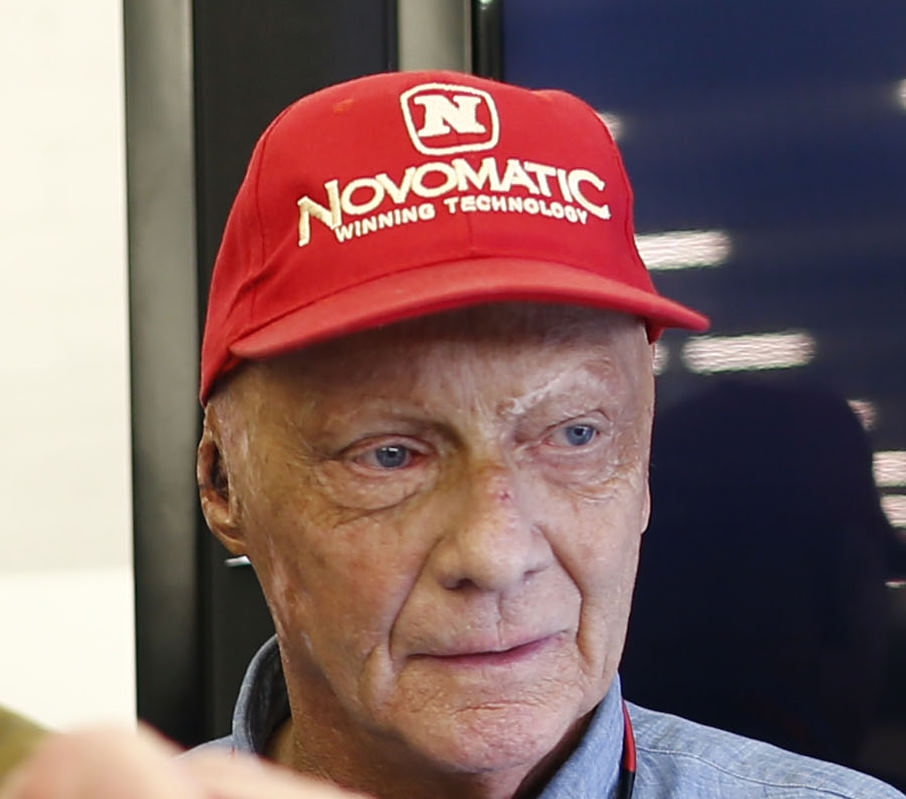
Lauda: "How is it Mercedes' fault if Ferrari eats spaghetti rather than improve their car?" Button not guaranteed 2016 McLaren seat
- Not quite 'free choice' for tires in 2016
- Wolff sure F1 will agree 2017 reforms
- Things going right for Hulkenberg – coach
- Wolff apologizes for Lauda's 'spaghetti' slur
- Mercedes not to blame for boredom – Surer
- 'Sprint qualifying' would change nothing – Zehnder
- Honda promises progress as McLaren tension mounts
- More shady deals for F1 ownership on the horizon New
- Alonso: Lack of development makes racing boring New
Button not guaranteed 2016 McLaren seat
(GMM) Two British correspondents say they do not believe reports that Jenson Button will definitely still be a McLaren driver in 2016.
A report by the British broadcaster Sky this week exclaimed that team supremo Ron Dennis "insists Jenson Button will stay at McLaren for 2016".
The headline followed comments by Dennis at Silverstone last weekend, in which he declared: "Jenson Button has a two-year contract with McLaren.
"We are not even thinking about drivers at the moment."
But Daniel Johnson, writing for the Telegraph, said 35-year-old Button's future is actually as clouded now as it was for much of last year.
He said the popular Briton's deal is actually not for two guaranteed years, but "one plus one" — one definite year and then an 'option' that McLaren must trigger.
Andrew Benson, the BBC's chief F1 writer, agrees: "Let's get one thing clear — Jenson Button is not guaranteed a seat at McLaren in 2016."
He said Dennis' quote is "both factually accurate and misleading".
The Telegraph's Johnson added: "(Dennis) has never been a master of communication. His latest comments on Jenson Button's future … are just the latest example."
Indeed, McLaren team boss Eric Boullier said at Silverstone: "Between now and let's say September, which is more or less the time when we have to decide, maybe we have not sorted out the situation faster, they (the drivers) get frustrated, and they want to go, so it's not in my hands."
Another factor could be money.
"So far," Boullier is quoted by Spain's El Confidencial, "we have a good prognosis for the coming years, but the lack of success is going to hurt us in terms of revenue, and we're going to have to find a way to cover this."
McLaren pays Button about $10 million a year, so switching to a promising junior like Kevin Magnussen or Stoffel Vandoorne could save the struggling team a considerable amount.
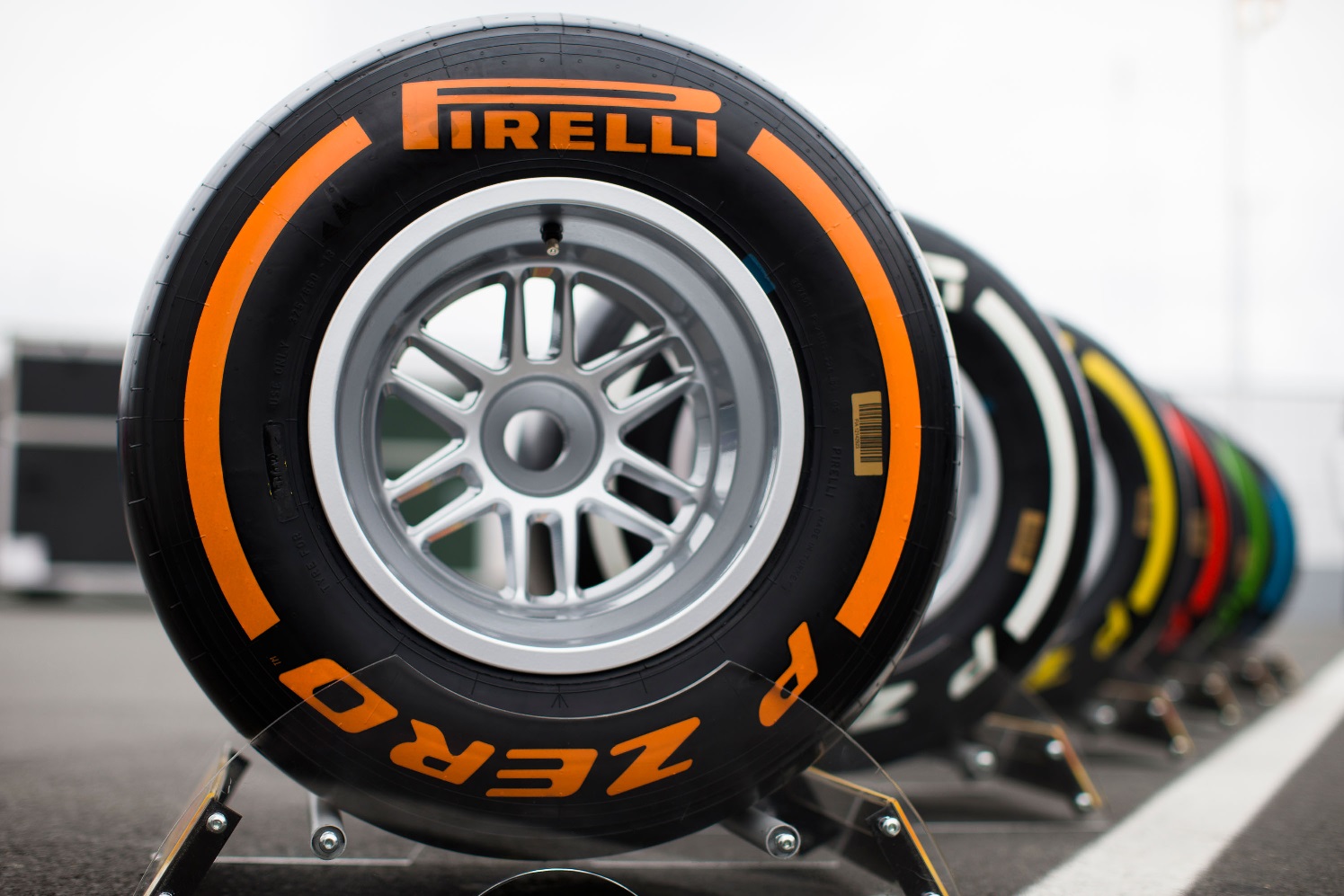 |
| Pirelli F1 tires |
Not quite 'free choice' for tires in 2016
(GMM) Pirelli has ruled out giving teams 'free choice' on their selection of tire compounds for 2016.
The measure had been proposed by Force India and adopted by the Strategy Group as a central measure to spice up the spectacle of the sport.
It was also believed to have earned the approval of the teams, FOM and the FIA.
But the actual situation is more complicated. It is believed, for instance, that Pirelli will expand its compound range from four to six or even more options in 2016.
Teams, therefore, will not get 'free choice' among that range.
"No way," a Pirelli official was quoted as saying by Italy's Omnicorse.
"We are not willing to risk safety for the show. We have a few ideas that are on the table, but we think that teams will be able to choose their tires among the range of what we deem as acceptable for individual tracks.
"As just one example," the official explained, "we are very clear: at Silverstone, Spa or Suzuka, you will never see the 'super soft'."
Omnicorse said the most likely scenario is that Pirelli will designate three 'acceptable' compounds per race, with the individual teams then able to select their preferred two.
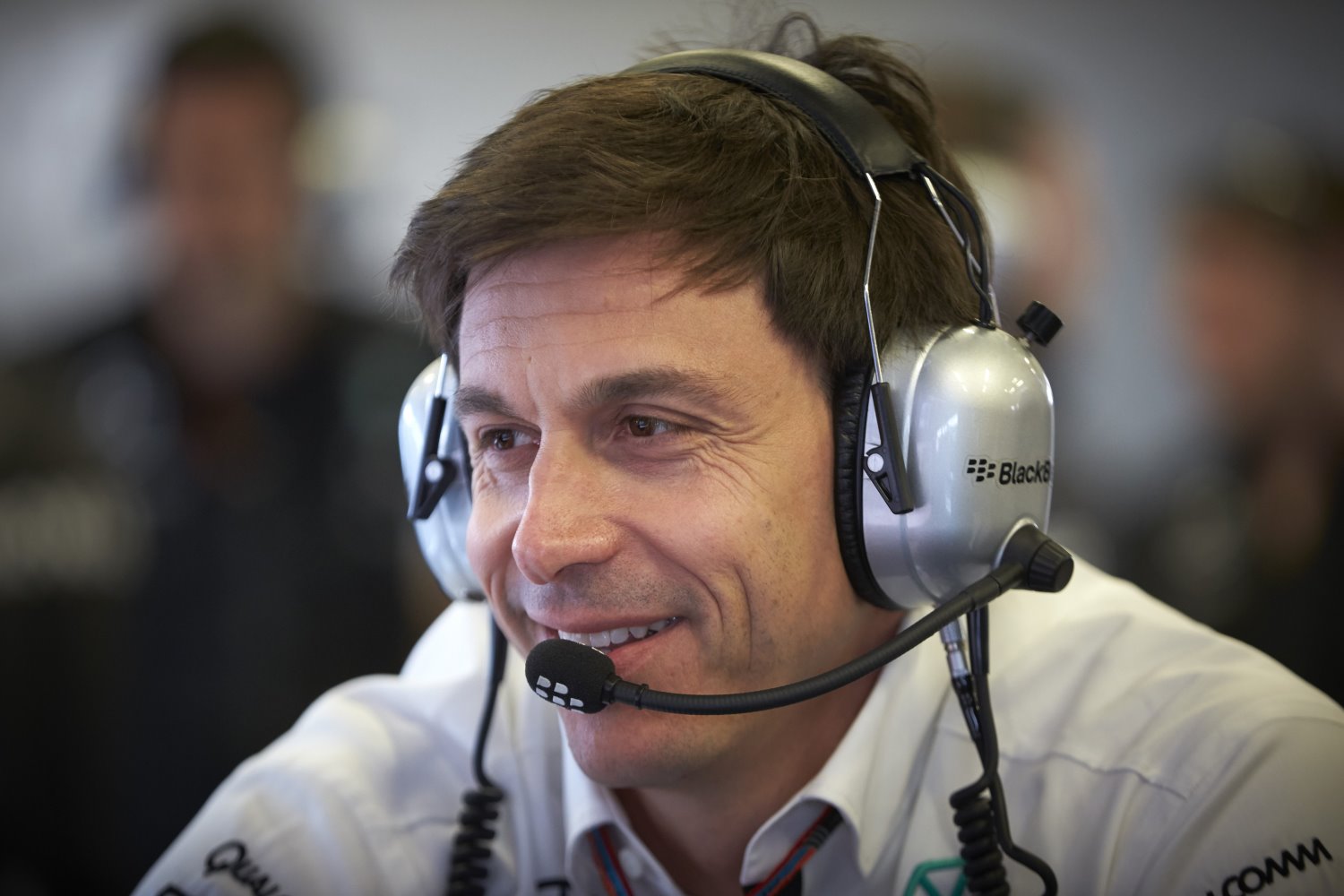 |
| Toto Wolff |
Wolff sure F1 will agree 2017 reforms
(GMM) Toto Wolff is confident F1 will ultimately adopt a much faster formula for 2017.
The sport has collectively agreed that the cars of today are turning off fans because they are too slow, so plans to speed up to the tune of 5-6 seconds per lap in 2017 are racing ahead.
But that task has been left to the Strategy Group — the much-maligned cooperation between top teams, the FIA and FOM that according to Bernie Ecclestone usually struggles to decide the date of the next meeting, let alone substantial reforms.
Mercedes' Wolff, however, told the Dutch newspaper De Telegraaf: "We have until February 2016 to vote on it, but I believe that the teams will unanimously agree.
"These new regulations will come," he insisted.
"The cars will be much faster in 2017," Wolff promised, "with the drivers taking center stage. They will once again be fully responsible for the car, without assistance from the pitwall."
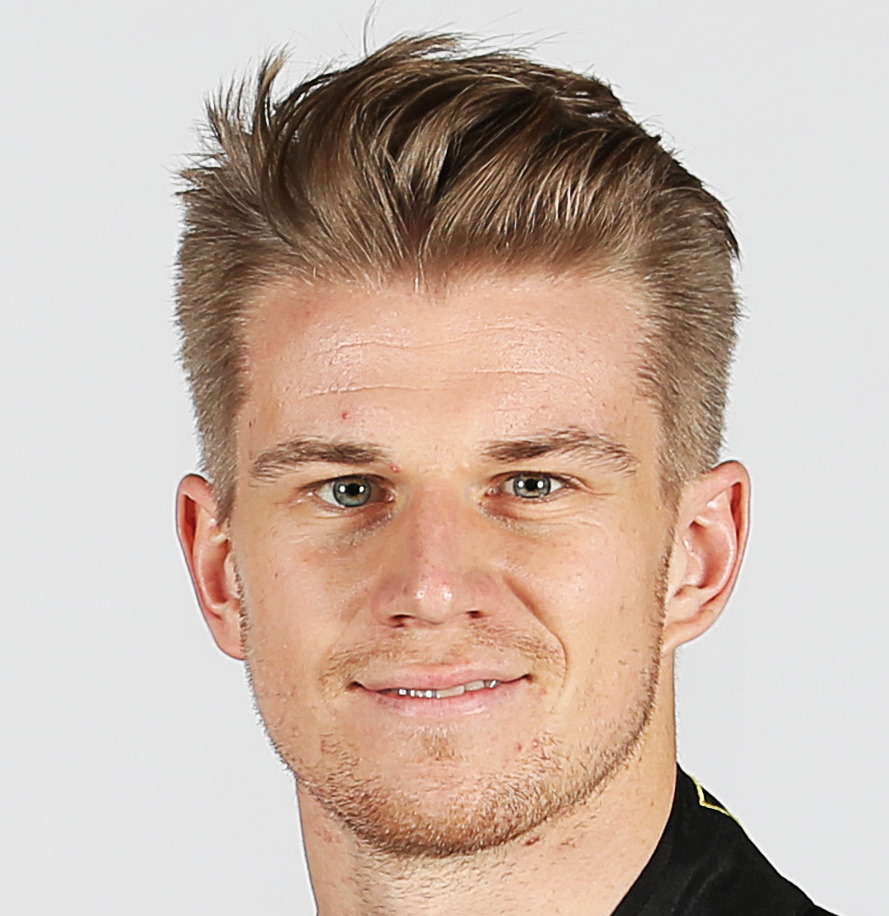 |
| Nico Hulkenberg |
Things going right for Hulkenberg – coach
(GMM) Victory at Le Mans breathed new life into Nico Hulkenberg.
That is the view of Mika Salminen, the Force India and Porsche driver's fitness trainer.
"His increase in confidence since the win at Le Mans is really noticeable," the Finn told Turun Sanomat newspaper. "At the moment, one success is following the next.
"It seems that everything is going his way," Salminen added.
According to some, German Hulkenberg is perhaps the most highly-rated driver in formula one yet to break into a truly top team.
But he is now being linked with a move to Ferrari for 2016, to replace the struggling Kimi Raikkonen.
'Performance coach' Salminen continued: "Nico has worked really hard on his career. This could be a crucial period for him.
"In Canada it was already going well, then came Le Mans, and now even the new car at Silverstone was working well out of the box," he added.
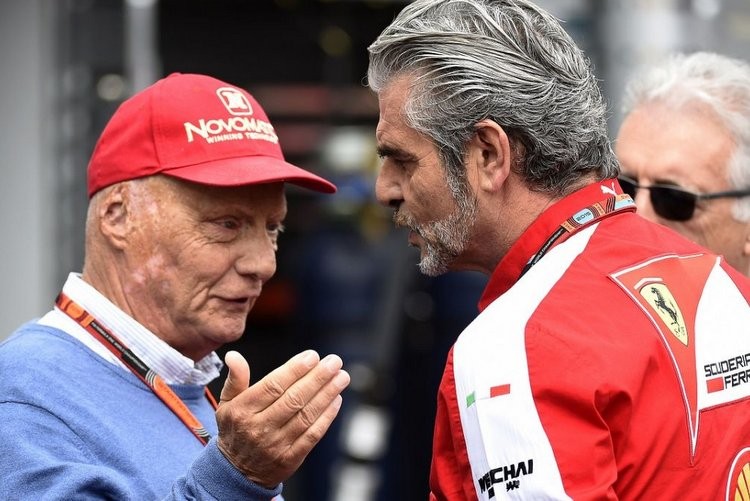 |
| Niki to Maurizio: Tell your guys to stop eating spaghetti and make your car faster |
Wolff apologizes for Lauda's 'spaghetti' slur
(GMM) Toto Wolff has apologized after his fellow Mercedes chief Niki Lauda slammed Ferrari.
Amid all the claims about Mercedes making F1 'boring' by dominating too easily, team chairman Lauda exclaimed: "How is it Mercedes' fault if Ferrari mucks about with spaghetti rather than improve their car on the track?"
Reportedly after complaints from fans and the fabled Maranello marque itself, however, Mercedes team boss Toto Wolff issued an apology on Lauda's behalf.
"Everyone knows Niki's special connection to Ferrari and his passion for formula one," he said of the F1 legend and fellow Austrian.
"That's why he is sometimes very direct and says things that sound sharper than they were actually meant.
"We at Mercedes don't want to offend anyone," Wolff told Bild newspaper. "We respect Ferrari and look forward to exciting duels on the track. We take Ferrari as a challenger very seriously and have to work hard to defend our lead."
And he concluded: "The fact that they don't only muck about with spaghetti was made very clear to us in Malaysia."
Lauda's comments this week, however, were not limited just to Ferrari.
The famous triple world champion was also asked about reports linking Mercedes with a supply of turbo V6 engines to arch-rivals Red Bull.
Lauda is quoted by Italy's Autosprint: "We can only give engines to four teams, and all have long-term contracts.
"Also, (Dietrich) Mateschitz has always showed some animosity towards Mercedes. I don't know why but it's the reality."
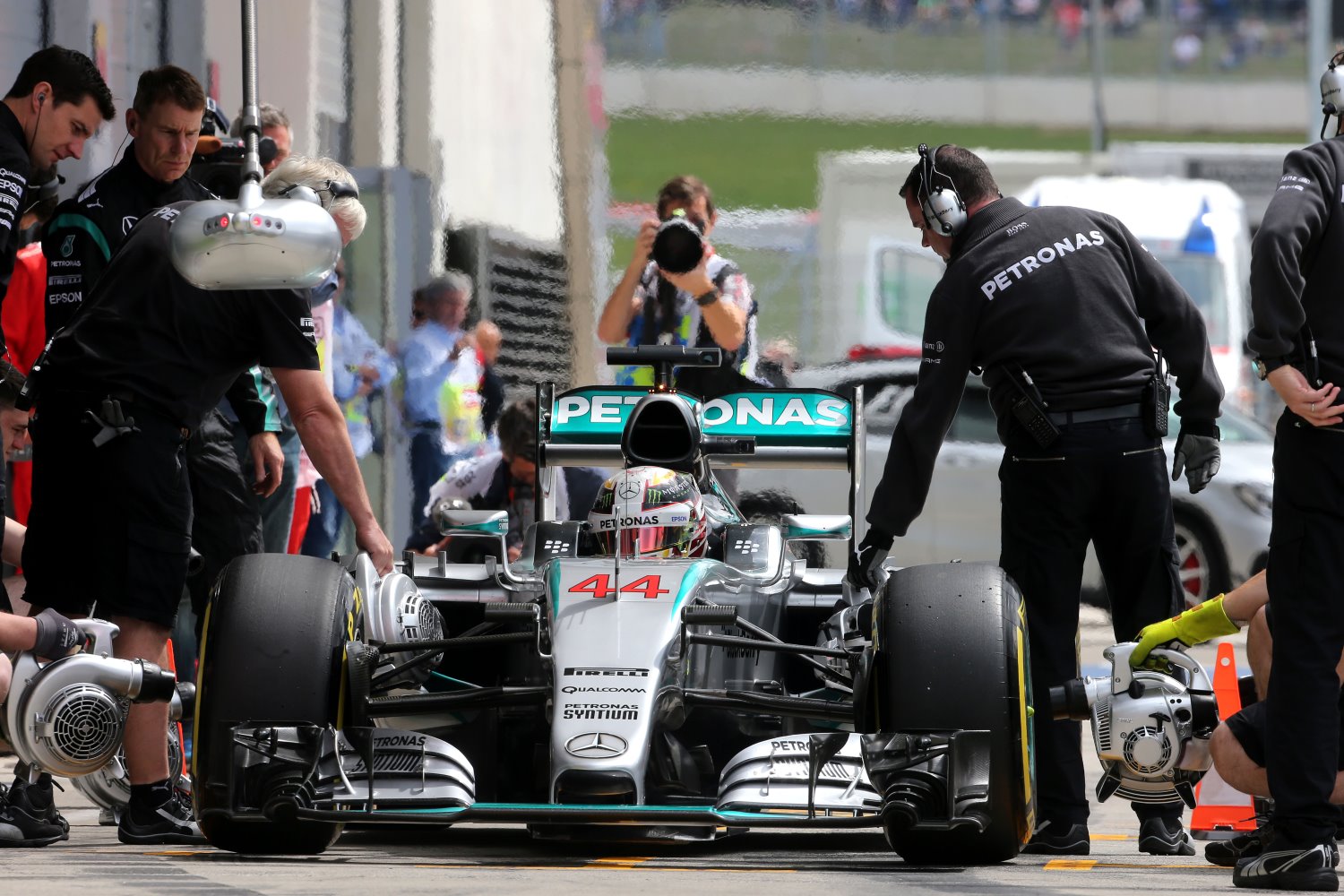 |
| Mercedes is to blame for F1 boredom – they pushed for the complicated and expensive engine formula |
Mercedes not to blame for boredom – Surer
(GMM) Former F1 driver Marc Surer says it is not fair to blame Mercedes for any of the sport's current problems.
While many think formula one is currently 'boring' because a silver car has won 14 out of the last 15 grands prix, Swiss Surer says the sport has often been the same.
"There have always been teams that have dominated," Surer, now a pundit for German television, said in an interview with Tages-Anzeiger.
"Before Mercedes, it was Red Bull with Vettel, Ferrari with Schumacher. We have to live with that, because so much depends on the technical side."
Asked if the level of the dominance has changed, however, Surer argues: "I don't think that has intensified in recent years. What has changed is the acceptance of the audience.
"But it has always been the exception if more teams are fighting for the title in the same season," he insisted.
"The fundamental problem is the regulations," Surer, 63, explained.
"It's too complicated so the fans no longer understand. At the same time, the marketing is a disaster. For example, Mercedes is the only team using the term 'hybrid', and for everything else we have MGU-H and MGU-K and formula one is not selling that message.
"It is my belief that the transition to hybrid was a great thing, because that is the future of cars, but those in charge made a mistake with the complexity of it all," Surer added.
'Sprint qualifying' would change nothing – Zehnder
(GMM) 'Sprint race qualifying' is not the answer for formula one.
That is the view of Beat Zehnder, Sauber's highly experienced team manager, following reports the Strategy Group wants to spice up the sport with a radical shakeup of the race weekend format.
One apparent suggestion is that traditional qualifying is scrapped and replaced with a Saturday 'sprint race', with the finishing order to determine the grid for the main grand prix on Sunday.
Zehnder told Speed Week: "The discussion about a Saturday race is not new.
"But in the end, what would change if we had a sprint race as the basis for the grid? Because it would be the same as now, with Mercedes, Ferrari, Williams at the front.
"To radically change something, you would have to implement the proposal of Flavio Briatore and reverse the grid," Zehnder added.
"But what does that have to do with performance and sport? Nothing at all. It would be artificial and against the basic idea of formula one," he said.
Sauber is not a member of the decision-making Strategy Group, but boss Monisha Kaltenborn says the Swiss team is supportive of changes to improve F1.
"Since we were not part of the discussion it's difficult for me to go into specifics, but from reading what the Strategy Group decided it looks like it's going in the right direction," she said.
"To us, it is important that the competition is interesting again — that's what the fans, the partners want and it seems to be going in the right direction."
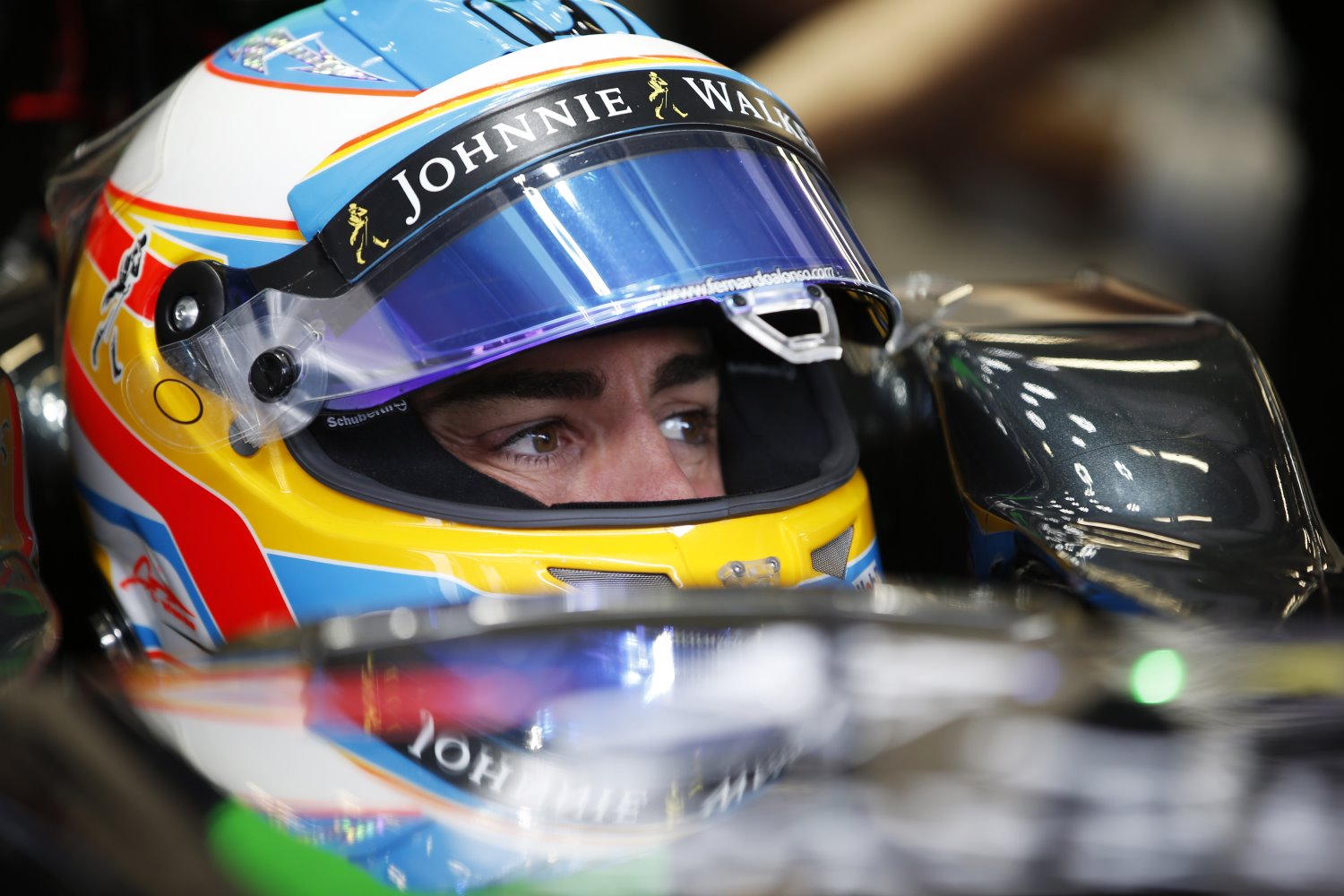 |
| McLaren and Honda tension mounts |
Honda promises progress as McLaren tension mounts
(GMM) Yasuhisa Arai has played down the huge pressure being applied on Honda by its works F1 partner McLaren.
The words expressed by boss Eric Boullier are increasingly exasperated, as the McLaren-Honda collaboration that promised so much is still badly stuttering at the half-way point of the 2015 season.
Referring to Honda's F1 chief Arai, Boullier said at Silverstone: "I tell him twice every day and three times for jet-lag — we need to succeed as soon as possible."
It is believed McLaren's obviously mounting frustration is because Honda and McLaren see their mutual project vastly differently.
While McLaren needs results quickly, for instance, Honda may be happily chipping away at a five-year plan.
So the Japanese carmaker is reportedly refusing McLaren's advice to speed up the process by hiring engineers from outside of Honda, because it regards the project as an 'HR' exercise rather than an urgent need for instant results.
But in a rare interview, Arai told Brazil's Globo Esporte that the relationship between McLaren and Honda is not breaking down.
"We had great success together in the 80s," he said. "There is mutual trust.
"Of course there is pressure to improve, but we are discussing everything together. It sometimes happens that we have one solution and the team another, but that is normal in this type of relationship," Arai added.
It is rumored that McLaren's frustration with Honda has grown because the carmaker is even resisting an offer to utilize the resources of the entire and vast McLaren Group.
But Arai responded: "We already work with McLaren Applied Technologies from the start of the project. They have developed software for our power unit, according to our requests. And they did a great job."
When told, however, that the cooperation could be extended even further, he insisted: "We do not need help with technology issues.
"Good advice, of course, is always welcome, but we do not need technology solutions (from elsewhere) for our project."
Globo correspondent Livio Oricchio, however, said the tension between Arai and Ron Dennis in particular is growing, as the McLaren supremo presses for the Japanese to be stepped down.
But Arai said he feels the pressure most from the "directors of our company" (Honda) and "the Japanese media".
"I do not think that with another director, the results would be different. Both the management of Honda and McLaren trust me," he insists.
"Every director thinks about how to make it better, and I'm no different. I think about it every day. It is a huge challenge."
Asked, however, when Honda will finally break through and begin to perform adequately, Arai answered: "Soon, I promise.
"In the second half of the season. I hope from Spa-Francorchamps.
"I would say that we have built a good foundation for development. It is in line with our planning and we advance step by step. The goals are being met.
"Ok," Arai continued, "I know that the results are not in line with the expectations of the fans, but we know what we are doing. Please give us some time.
"The second half of the season will be better, believe me," he concluded.
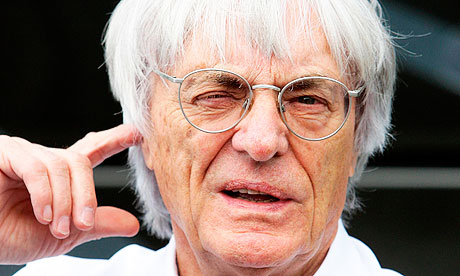 |
| Bernie will be doing deals until the day he dies |
More shady deals for F1 ownership on the horizon
Back in 1991, Ayrton Senna was changing the landscape of Formula One. He completed the season winning what would be his final F1 championship.
This was the final year when Nigel Mansell, Alain Prost, Nelson Piquet and Senna all competed together. Prost refused to partner Senna again and took a sabbatical in 1992, while Nelson Piquet decided to quit the sport altogether.
Meanwhile, the chief executive of Britain’s largest Jeweler was to make one of the most stupid mistakes ever by someone in charge of a multi-national business.
Ratners Jewelers had been popular with the less well off in the UK and America and was a stack ‘em high – sell ‘em cheap operation – but highly successful at what they did.
Gerald Ratner wiped £500 million from the value of Ratners with one speech. He said: “We also do cut-glass sherry decanters complete with six glasses on a silver-plated tray that your butler can serve you drinks on, all for £4.95.
“People say, ‘How can you sell this for such a low price?’ I say, because it’s total crap." He added that his stores’ earrings were “cheaper than an M&S prawn sandwich but probably wouldn’t last as long".
Ratner is a renowned business case study of how a CEO should not behave. His comments were beyond foolishness.
In the week prior to the Austrian GP, Bernie Ecclestone was quoted by the AFP news agency as saying, “I told them they have given me a crap product to sell."
Ecclestone later back-pedaled when asked to explain himself, replying, “Really? I don’t know who said that. Bad quote".
The F1 product is clearly not so crap if the actions of race promoters are anything to go by. In 2016 we are set for a maximum and record 22 races, given the recent confident press releases from the Qatari’s.
But Ecclestone has consistently been talking down F1 since the introduction of the new V6 Turbo hybrid engines in 2014. The rhetoric had become so obtuse that Martin Brundle asked F1’s CEO whether he was attempting to drive down the sale price of Formula One.
MB: So you’ve been openly critical as the promoter; are you trying to knock the price down and buy this back as some people are saying?
BE: Not really no.
MB: Do you want full ownership back if you can get it?
BE: No.
MB: You don’t need that aggravation?
BE: No.
MB: It’s not on the agenda at all. So that story is…
BE: It’s all nonsense.
(Q&A on SKY F1 Bahrain 2014)
A year or so on and according to Ecclestone, the CVC investors are demanding that F1 be sold. This despite making no less than 500% profit in less than 10 years.
“It’s like all hedge funds," Ecclestone told Adam Cooper. “They invest people’s money for a certain period.
“It doesn’t matter how good they do, they have to give it back. Maybe they re-invest again, maybe they don’t, I don’t know.
“They’re past their sell-off date. They have extended it a couple of times."
Of course CVC now own around just 1/3rd of Formula One commercial rights, having sold shares to various global finance operations and two pension funds belonging to the teachers of North America.
These new investors were enticed to purchase CVC held shares in F1, because not long after their acquisitions CVC borrowed money using F1 as security (like a mortgage) to pay the new shareholders a ‘leveraged dividend’. The ‘dividend’ was interestingly about the same for each new shareholder as the entire amount they paid for their shares.
Formula One now has a debt estimated in excess of $4bn and currently an estimated sale value of $7-8bn. Given the debt and the uncertainty surrounding the sustainability of the existing F1 business model, this price looks at the top end any analyst could justify.
Having stated just over 12 months ago he had no interest whatsoever in buying back F1, Ecclestone has now changed his tune. Last week Bernie openly discussed with F1 writers the option of he and Donald Mackenzie – head of private equity fund CVC – doing a joint venture to buy the commercial rights to Formula One.
“Donald Mackenzie doesn’t want to sell, as simple as that", Ecclestone revealed. “He loves F1, he loves the business, he doesn’t want to sell. He may have to sell his shares [CVC shares]. Whether he’ll invest himself, maybe with me, separately, we’ll have to wait and see,"
Donald Mackenzie however is telling a slightly different tale. He says there is no deadline for CVC to sell their shares because the investors have been paid back many times their original investment so, “the pressure is off."
Mackenzie is categorical: “We don’t want to sell."
Make of this difference what you will.
CVC, Ecclestone and the Lehman Brothers Fund (15%) own around 51% of the F1 commercial rights, the rest own 49%.
These include Waddell & Reed (invested $1.1 billion on behalf of clients), BlackRock ($200 million), Norway’s sovereign wealth fund Norges Bank Investment Management, ($300 million), North American teacher pension funds ($400m), the Singapore sovereign ($1bn and discounted race hosting fee).
Any deal to take control of Formula One’s commercial rights must be approved by the FIA, but does not require the agreement from the minority shareholders and they may not be offered the option to sell their shares.
The big question is, who will be the next master of our beloved sport.
Given the chance, F1 needs to ditch Bernie Ecclestone. He has clearly demonstrated he will trash talk the sport for 18 months just to create an opportunity for himself to buy back the F1 commercial rights on the cheap.
Bernie may be no Gerald Ratner – in that as CEO he has devalued his F1 product deliberately, not by accident.
Further, Bernie’s divide and conquer culture will continue to infest the participants in F1 as long as he has some level of control and perpetuates this way of thinking. TheJudge13.com
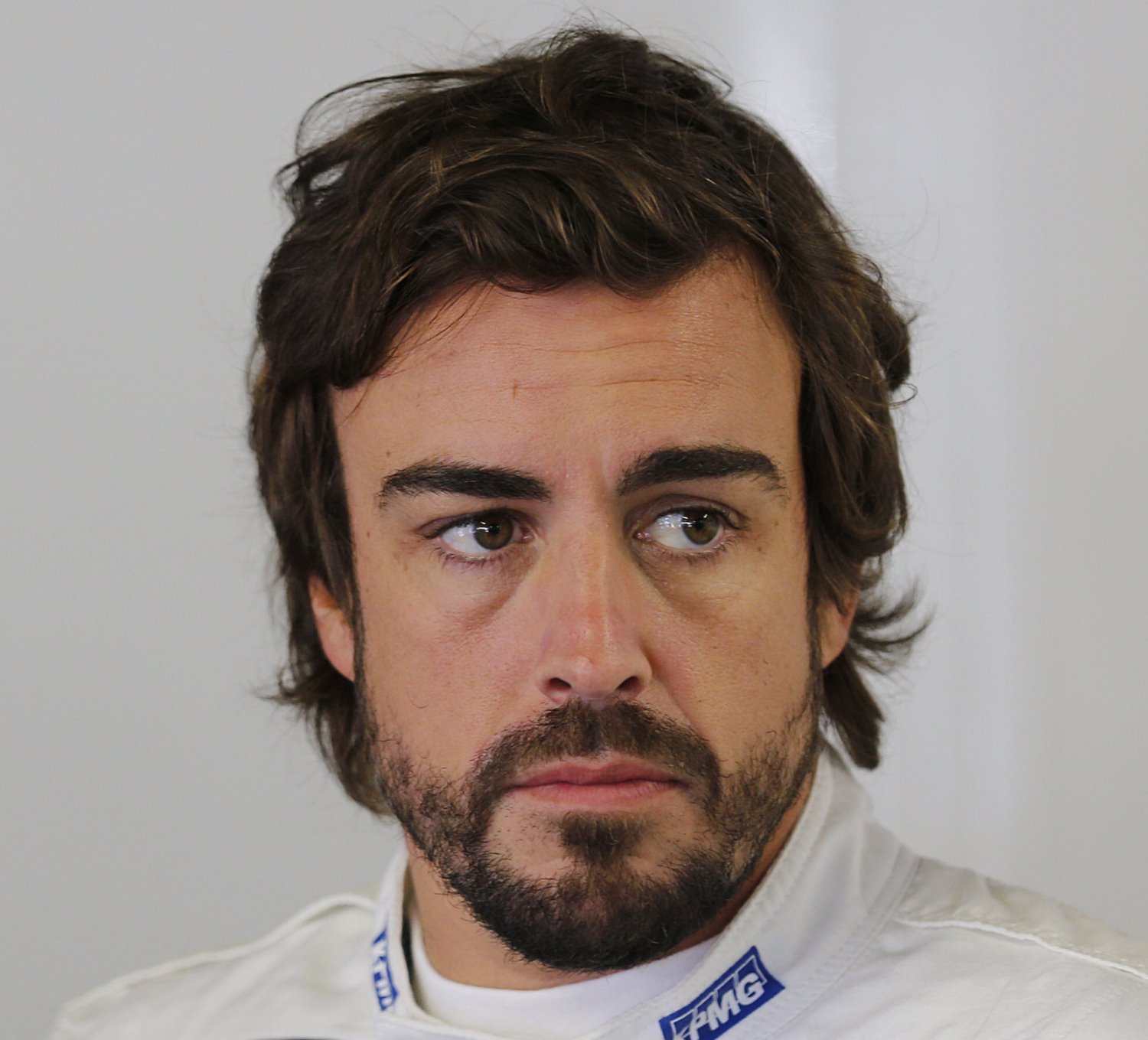 |
| In reality what makes racing boring for Alonso is the fact that he is now a backmarker |
Alonso: Lack of development makes racing boring
Fernando Alonso feels the restrictions on testing and developments in Formula 1 is too tight and chokes the sport's rate of improvement to make it a better spectacle.
